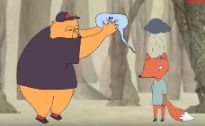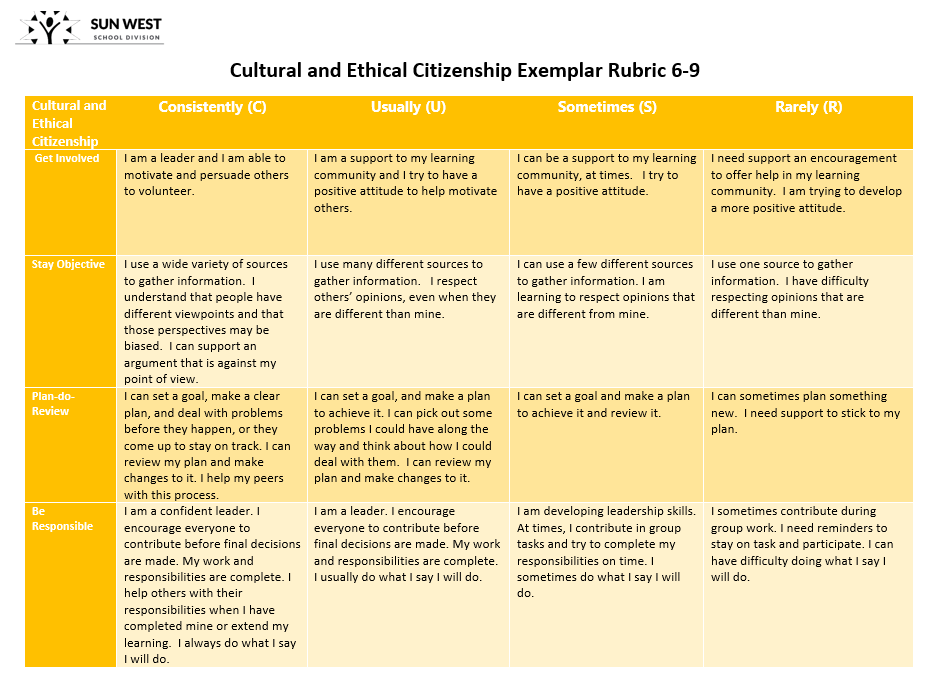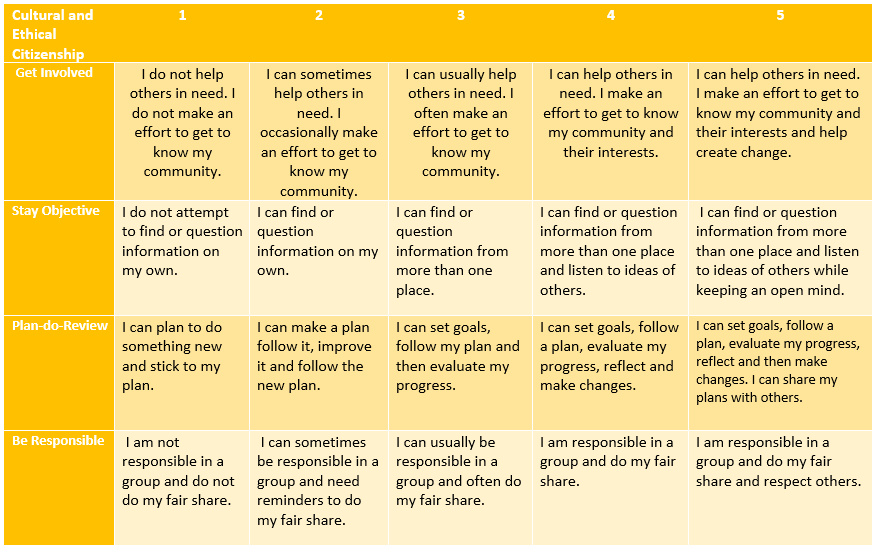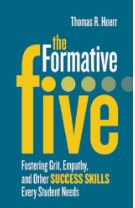Cultural and Ethical Citizenship Guidebook - 6-9 (Middle Years) Sun West
Cultural and Ethical Citizenship Middle Years 6-9
Purpose
Why is this important?
Cultural and Ethical Citizenship is a key 21st Century skill that students need to embody in order to create and share their views and opinions, as well as expand their understanding of their role within a group as a leader and contributor. Having the skills and abilities to get involved, stay objective, plan-do-review, and be responsible, allows students to be successful participants in the planning of their learning and assessment.
- Key Steps in Teaching Cultural
and Ethical Citizenship Strategies
Isolate the skill needed to be taught. - Provide students with direct teaching to learn strategies and practice self-awareness.
- Provide and allow opportunities for students to practice the skills and strategies, and reflect often. This takes time at first, but students are rewarded for their efforts once they are able to master their practiced skill.
- Revisit strategies and skills often.
Key Steps in Teaching Creativity Strategies
- Isolate the skill needed to be taught.
- Provide students with direct teaching to learn strategies and practice self-awareness.
- Provide and allow opportunities for students to practice the skills and strategies, and reflect often. This takes time at first, but students are rewarded for their efforts once they are able to master their practiced skill.
- Revisit strategies and skills often.
Explicit Teaching
To be able to learn and grow in 21st Century Competency understanding, it is important to teach each skill and let students experience what each skill looks like as well as how you can grow in each area. Caution: by simply saying the word "communication or collaboration...etc" students may not get a full understanding of each skill. Explicitly teaching and utilizing skills in different ways is what will ultimately promote deep understanding and growth in 21st Century Competencies.
Timeline Suggestions for Explicit Teaching
The document below provides a year plan to teach each of the 21st century skills. It is beneficial to have an explicit teaching plan to ensure each skill is taught; however skills should also be reinforced as much as possible throughout class time.
Lesson Plan Ideas
Get Involved
concentus.ca - Awesome Canadian Based website with ideas from K-12 connected to Citizenship. View for lesson plan ideas.
Understanding Ethical Consumerism- Created by Me to We as a way of understanding local and global issues and finding ways to take action.
Stay Objective
Empathy:
Developing empathy is a great way to begin building cultural and ethical citizenship. Creating lessons on empathy can help students develop postive cultural and ethical citizenship.
Brene Brown quote (below) and empathy video:
“Rarely can a response make something better. What makes something better is connection.” – empathy, interpersonal relationships, etc. lead to better understanding. Empathy involves feeling with people. As educators, we must challenge ourselves to help students overcome barriers to understanding. Inquiry based learning is a solid way to develop empathy and support this process. Click here for Brene Brown Empathy Video link

Image of Brene Brown Empathy Video
Empathy is Academic: Lessons from Lotus Slippers – this article may provide some inspiration as to how to use empathy to overcome cultural biases. If trouble with the link, google Naomi Priddy and lotus slippers.
How I teach students about equality: only Smarties have the answer. Lesson idea for equality/equity.
Plan-Do-Review
Letter Writing
If you have ever entered a classroom full of 25 elementary aged kids, you know they are full of curiosity and suggestions. As a teacher it is important to fuel that curiosity and encourage their creativity. When a student comes to you with a question or concern, whenever possible, encourage them to research it. They should discover what the problem is, why it is something we should care about, and how they think it can be resolved. Then students can take initiative and contact the appropriate leader. These problems can be small, like whether or not they should have assigned seats at lunch. By doing their research and coming up with a valid argument, writing persuasive letters to the principal might instill change within the school. These problems they discover may be large, like a problem with stray animals in their local parks. Again, by doing research and brainstorming possible solutions, students can write a letter(s) to the mayor addressing the fact this is an issue important to them and they believe something should be done. This is the ultimate form of citizenship within the classroom. They are being active, engaged, and informed. It also ties in ELA through research and writing.
Be Responsible
Classroom communities focusing on citizenship take some significant planning (a great opportunity to co-teach!) but can lead to incredible simulations of real-world experiences. Here are some ideas to help with lesson planning:
Micro-Society in Red Deer school (be sure to view the video!)
Tiged - Perform a search for related resources/lesson plans. Ex. Civics and Citizenship generates quite a list of lesson plans and ideas.
Integration of Skills
Intentional integration of 21st Century Competency language in all day-to-day activities supports the development of routine reflection, skill use, and growth in support of curricular knowledge acquisition.
If we do not intentionally integrate 21st Century Competency connections into our learning environments, it is easy to forget about them. As the language becomes routine, growth in skills can and should be explored regularly. Ultimately the 21st Century Competencies are the skills needed to be successful in all day-to-day activities as well as future career opportunities. By being intentional in integrating the language and skill use in all aspects of learning, understanding of the skills can be applied and reflected upon to look for areas of potential growth and application.
Once skills have been explicitly taught, integration of 21st Century Competencies can be achieved by connecting skills to all curricular areas, participating in pre-and post reflections (allowing students to predict which skills will be needed and subsequently which skills need to be worked on) and the use of 21st Century Competency rubrics to track growth. Example: by using learner profile data, students can reflect on which skills they need to employ for a particular activity and based on this information, choose group members that have strengths or challenges in those skill areas.
Examples
When integrating 21 Century Competency language in all areas of learning consider the following curricular connected resources. As you use similar resources in your own learning environment, how can you relate them back to growth and understanding of the 21 Century Competencies?
In ELA
Big themes in ELA connect to many aspects of cultural and ethical citizenship. Be sure to included regular lessons on the following topics, and providing ample opportunity to practice, share and reflect.
- The ELA strands (reading, writing, speaking and listening) as best taught objectively and by considering, and respecting, others views and perspectives. Encourage students to stay objective and be responsible when learning.
- Explicitly teaching students the writing process, and the benefits of plan-do-review will aid them in goal setting beyond the classroom.
- Model to students, and support their desires to, get involved. By supporting volunteerism within the classroom and school community students will become stronger citizens as a whole.
In Math
Students can show their cultural and ethical citizenship skills in Math as well! Therefore, it is important to discuss and model these skills using the following opportunities for your students:
- Being responsible is important in math as students need to complete practice questions and follow course timelines.
- Students should embody leadership skills, invite unique ideas, and encourage others to do their best while solving problems in pairs or small groups.
- Teach students to set goals in math and follow the plan-do-review method to remain on task and succeed in the process.
Teachable moments
Whenever a question, situation, comment or activity that involves a connection to a 21 Century Competency arises, take a moment to talk to students about it. Discussing skills, how they integrate into everything you do in life makes the reflection on the importance of skills a habit. This habit will instill a growth mindset around developing skills to their fullest potential. Teachable moments can be as short as 20 seconds. Make it your habit and it will become theirs!
Tracking Growth
When considering 21st Century Competency application, it is essential for both the teacher and the student to track growth. There is clear potential for growth in skill use throughout our lives. To ensure growth and understanding of application is taking place, we can easily track progression using rubrics, checklists, and self-assessments.
Formative Assessment
Formative assessments of 21st Century Competencies include anecdotal documentation, self-assessments and rubric check-ins. These formative assessments provide snapshots of growth throughout the learning process and allow goal setting to take place.
See below for Self-Reflection and Goal Setting Documents:
Assessing Growth
Formative assessments of 21st Century Competencies include anecdotal documentation, self-assessments and rubric check-ins. These formative assessments provide snapshots of growth throughout the learning process and allow goal setting to take place.
See below for Self-Reflection and Goal Setting Documents:
Summative Assessment
Exemplar Rubrics:

Cultural & Ethical Citizenship 6-9
Cultural and Ethical Citizenship Exemplar Rubric 6-9
|
Cultural and Ethical Citizenship |
1 |
2 |
3 |
4 |
5 |
|
Get Involved |
I can sometimes volunteer during discussions or volunteer to help with projects and jobs around the classroom and community. |
I can usually volunteer during discussions and offer to help. I also listen closely to my learning community and respect them. |
I can be a support to my learning community, I try to have a positive attitude all of the time. |
I can be a support to my learning community, I try to have a positive attitude to help motivate others. |
I can be a leader, I am able to motivate and persuade others to volunteer and help. |
|
Stay Objective |
I can use other people’s ideas as well as my own to solve a problem. |
I can investigate two different viewpoints when answering a question and think about each equally. |
I can use various sources when I research and evaluate the different viewpoints. |
I can use various sources when I research and evaluate the different viewpoints and have my own opinion while still respecting others. |
I can understand that people have different viewpoints and that those perspectives may be biased. I can try to create an argument that is against my point of view. |
|
Plan-do-Review |
I can plan something new and stick to my plan |
I can set a goal and make a plan to achieve it with help. |
I can set a goal and make a plan to achieve it and review it. |
I can set a goal, and make a plan to achieve it. I can pick out some problems I could have along the way and think about how I could deal with them. I can review my plan and make changes to it. |
I can set a goal, make a clear plan, and deal with problems before they happen and as they come up to stay on track. I can review my plan and make changes to it. I help my classmates with this process. |
|
Be Responsible |
I do not contribute in group meetings. I need constant reminders to stay on task and participate in group activities. |
I can communicate and speak up when I have ideas. I contribute little in group tasks. I try keeping up with the group but have difficulty doing so. |
I am a leader who has good ideas. I contribute in group tasks and complete my responsibilities on time. I do not waste time and work is well done. |
I am a confident leader. I encourage everyone to contribute before final decisions are made. My work and responsibilities are well done. |
I am a strong leader. I encourage everyone to contribute before final decisions are made. My work and responsibilities are well done. I help others with their responsibilities when I have completed mine or extend the learning. |
Co-creating Rubrics

Exemplar Rubric
Exemplar rubrics have been developed for K-5, 6-9 and 10-12. To connect fully with students in their understanding of skill application and growth, a recommendation would be to re-write the rubric with the students to include their understanding of the skill, goals for integration in learning and commitment to the skill development.
Resources
Sun West Resource Bank Cultural and Ethical Citizenship Resources
Print based
21st Century Skills in Career and Technical Education Resource Manual
Steps and Strategies for Developing Empathy – Thomas R. Hoerr. For further information, we have a book in the Sun West School Division Library by T.R. Hoerr called The Formative Five: Fostering Grit, Empathy, and Other Success Skills Every Student Needs. Developing empathy can help further develop positive cultural and ethical citizenship.

Formative Five image - book available in Division Office Library
The Heart of the Matter: Character and Citizenship Education in Alberta Schools
There are a number of Instructional Strategies that can support the development of Cultural and Ethical Citizenship.
Some suggestions can be found in “The Heart of the Matter: Character and Citizenship Education in Alberta Schools” by Alberta Education (beginning on page 105) including:
Cooperative Learning
Group Discussion
Journals and Learning Logs
Role-Playing
Graphic Organizers
Literature Response
Service Learning
Issue-based Inquiry
Concentus Citizenship Education Resource Packages Gr.6-9 (An awesome resource and related website for teaching citizenship - Canadian Based)
Empowering Students to Improve the World in 60 Lessons – ideas for Grades 1-12 This was created in the United States and includes a great deal of background information. The lesson plans offer some good ideas which could be adapted to meet curricular outcomes and Cultural and Ethical Citizenship focuses.
Digital Citizenship in Schools by Mike Ribble: Book on digital citizenship and ways of incorporating lesssons and PD in schools if wishing to explore Cultural and Ethical Citizenship through a Digital Citizenship perspective.
Videos
If deciding to explore Cultural and Ethical Citizenship through a Digital Citizenship lens, there are some videos and resources accessible at Common Sense Media and Media Smarts.
What is Digital Citizenship? – by Common Sense Media. There are a number of useful videos and resources on this site.
Digital Literacy 101 – by Media Smarts – There are a number of useful videos and resources on this site.
Interactive
Educational Articles
Websites
Consentus: Citizenship Education Foundation (Awesome Canadian Based Website)
Saskatchewan Council for International Cooperation - SCIC’s Global Citizenship Education Program helps Saskatchewan teachers integrate international development and global justice into their classrooms by providing free, downloadable teaching resources for high schools and elementary schools. These are lessons created by SCIC’s member organizations and have been compiled and reviewed to meet Saskatchewan Curriculum connections.
Again, if deciding to explore Cultural and Ethical Citizenship through the lens of Digital Citizenship, refer to the Computer and Digital Technologies Guidebook and the websites below:
Common Sense Media – Lesson plans for every grade level focused on positive digital citizenship (American site, but lots of good resources).
Media Smarts: This is Canada’s Centre for Digital and Media Literacy. There are a number of resources and ideas for teachers, parents, etc. to help explore digital citizenship and proper use of technology.